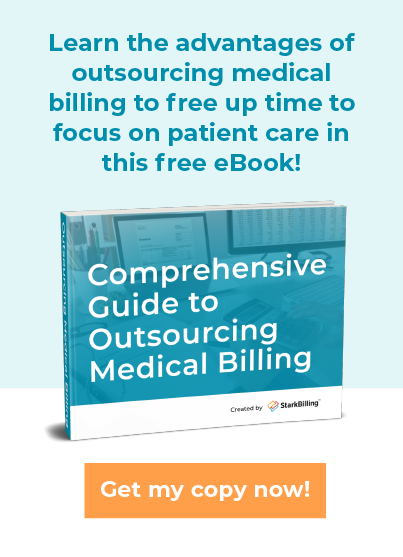In a complex environment, healthcare practice oversights can be daunting. Even smaller tasks are time-consuming and affect office efficiency. That’s why medical practices need a billing service partner to provide simple tasking and comprehensive solutions, thus streamlining the claims process and maximizing revenue.
From claim submission and payment processing to coding compliance and patient support, there are numerous reasons to use full-service medical billing service management.
Revenue Stability with Full-Service Medical Billing Services
Revenue generation and management is a crucial metric for any practice. Outsourcing financial cycle management to full-service medical billing providers offers specific and customized benefits.
- Payor-Specific Knowledge: It’s a full-time job trying to stay updated with individual payor policies and requirements. Comprehensive medical billing service partners keep abreast of regulatory and payor policies. This specialized knowledge helps optimize claims during initial submission, and the preemptive approach translates to higher acceptance rates and faster payments.
- Movement and Growth: Accommodate change by choosing a full-service medical billing partner. Centralizing medical billing tasks supports a growing practice and ensures everything keeps working when moving to a new location. These comprehensive services are also helpful within multi-location practices. Traveling medical professionals will appreciate having one service that coordinates billing, and regardless of where treatment is administered, patient information and billing can be expertly handled by one medical billing provider. A central point ensures fulfillment of administrative tasks, maintains documentation oversight, and correctly bills all treatment services.
- Fee Schedule Updates: Full-service billing agreements include automatic fee schedule updates. Maintaining current information ensures that claims are accurately based on the most recent reimbursement rates. It also updates payable and billable codes, which can change throughout the year. If you work with multiple payors, this can save time, significantly reduce costs, and ensure maximum revenue.
- Direct Deposits: Access your money faster with direct deposits, ACH debits, and credit card processing. Required by most healthcare insurance payor contracts, including Medicare, Medicaid, and VA services, direct deposits often significantly accelerate the payment cycle. Electronic payment solutions help patient remittance and are a convenient way to pay medical practice vendors.
- Dedicated Customer Support: Knowing who to call and trusting that they have the right answers provides peace of mind. A medical billing services partnership reduces administrative stress by providing a reliable and trained customer support team. Full-service medical billing services have dedicated staff to assist practices and their patients, improving overall satisfaction and minimizing administrative burdens.
Usable Benefits of Full-Service Medical Billing
Usable benefits are the goal of any service partner. The expertise and technology of reliable full-service medical billing services enhance a healthcare practice’s daily operations. From claim creation to payment processing, dependable companies provide surety in today’s dynamic healthcare landscape.
- Claim Feedback: A centralized electronic data interchange (EDI) platform enables claims to be quickly and easily transmitted to payors. Its use also accelerates the receipt of statistical reports, explanations of benefits, payment details, and claim denials. This way, corrections can be made quickly, without waiting thirty or more days for a response. Another key benefit of using EDI is the electronic exchange of documentation requests and submissions. An online workflow process provides proof of response through electronic reporting if needed.
- Patient Data Protection: Full-service billing companies prioritize data security and compliance. They have robust systems and protocols to protect patient information, ensuring compliance with HIPAA regulations. The HIPAA Security Rule has three safeguards: administrative, physical, and technical. Full-service medical billing services adhere to accepted data protection’s best practices, with data encryption, usage logs, external or second-site back-ups, secure devices through password access, and ongoing risk assessment.
- Easy Reporting: Full-service billing partners can also offer customized reporting and analytics tailored to each medical practice. On-demand generation of comprehensive reports highlights financial performance, identifies trends, and monitors key metrics to support data-driven decisions. Individualized reporting can also help with outreach marketing, developing a more personalized approach.
- Appeal Management: Handling claim denials and appeals can be complicated. Established full-service medical billing services rely on expertly trained staff to manage claim denials. These experienced teams are dedicated to analyzing denial reasons, preparing strong appeals, and pursuing maximum reimbursement for each client.
- Seamless Workflow: Many full-service billing partners offer integration with electronic health record and practice management systems. Contact and patient demographic information and electronic documentation easily link with a full-service medical billing program. This integration streamlines the daily operations of any medical practice.
Incorporating trustworthy full-service medical billing services into a healthcare practice can yield significant advantages. From direct deposit payments to enhanced compliance and compassionate patient support, outsourcing daily responsibilities to an all-inclusive medical billing partner like StarkBilling enables healthcare providers to focus on patient care.
Outsourcing your medical billing to StarkBilling helps with the time-consuming process of providing continuing education to staff in order to keep up with insurance and HIPAA regulations. Focus on your patients. Allow StarkBilling to focus on increasing your revenue.






